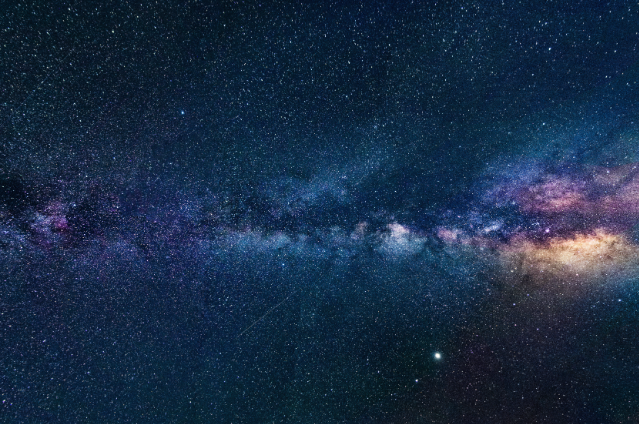
Time, the elusive entity that governs our existence, is a subject of perpetual fascination and contemplation. It is understood by different minds with different perspectives in different ways. The contrast in thoughts arises from the unique experiences we have had through time. It is one mystery we should talk about and that’s exactly what we will do. Time has quite a tumultuous nature, a blend of philosophical abstraction and scientific intricacy, presents a captivating journey into the essence of our temporal reality. So, let’s embark on this journey.
INTRODUCTION
Time is more intricate than just moving forward chronologically. It encapsulates a dynamic interplay of events, emotions, and perceptions that shape our understanding of reality. Both philosophy and science wrestle with the enigma of time. From ancient philosophical musings to cutting-edge scientific theories, the quest to comprehend time's essence has been a relentless pursuit. Let’s dive into the philosophical side first.
Philosophy of Time
Throughout history, philosophers have delved into the nature of time. Aristotle's linear concept contrasts with Augustine's musings on past, present, and future simultaneously. Aristotle viewed time as a continuous and unidirectional flow, moving from the past through the present and into the future. In contrast, Augustine's philosophical reflections proposed a unique understanding where past, present, and future coexist in a moment, challenging the conventional linear perception of time. The philosophical discourse continues to evolve, offering diverse perspectives on the temporal tapestry.
One of the enduring debates is the subjective experience of time versus its objective measurement. Does time exist independently, or is it a product of our consciousness? This philosophical conundrum deepens the tumultuous nature of time.
Philosophers challenge the conventional notion of time as an absolute constant. The idea of time as a human construct, shaped by cultural, social, and individual factors, adds complexity to its understanding.
Scientific Understanding
In the early 20th century, Einstein revolutionized our understanding of time with the theory of relativity. This groundbreaking concept highlighted the interdependence of space and time, introduced the dilation of time in motion, and proposed the idea of a unified spacetime fabric, marking a new era in scientific contemplation.
On the microscopic scale, quantum mechanics adds another layer to our perception of time. The uncertainty principle challenges traditional notions, inviting exploration into the timeless dance of particles. It presents a different facet, where the regular flow of time takes on a more intricate, unpredictable nature.
Additionally, the arrow of time, portraying the asymmetry between past and future, sparks intriguing questions about the nature of temporal progression. Why does time move forward? Thermodynamic principles, especially the increase of entropy, provide valuable scientific insights into the fundamental directionality of time. Together, these scientific advancements offer a multifaceted understanding of time, bridging the macroscopic and microscopic realms of the universe.
Strings between Science and Philosophy
The gap between philosophy and science is diminishing with the rise of interdisciplinary studies. Through critical analysis and conceptual exploration, philosophy challenges scientists to reflect on the implications of their work beyond the laboratory, fostering a deeper appreciation for the broader significance of scientific discoveries. Conversely, science provides the empirical evidence and tangible results that ground philosophical inquiries. It offers the practical means to test hypotheses, validate theories, and uncover the mysteries of the natural world. The synergy between philosophy and science creates a dynamic interplay where abstract contemplation informs empirical exploration, and vice versa.
When we discuss science and philosophy, it's impossible not to bring up the masterpiece, "Interstellar." The film beautifully weaves together intricate scientific ideas – like relativity, black holes, and space-time – with deep questions about humanity, love, and time. What makes "Interstellar" truly exceptional is its knack for blending precise science with profound philosophy, delivering a movie experience that not only engages the mind but also touches the soul. It's a cinematic journey that brilliantly combines the wonders of science with the depths of human reflection.
Collaborations between philosophers and scientists are fostering a comprehensive understanding, recognizing the mutually beneficial relationship between abstract contemplation and empirical investigation. This truly is the best of both worlds, isn’t it?
How does it influence our understanding?
How we see time is like a mix of deep thoughts and cool science stuff. Understanding this teamwork lets us enjoy time in a way that goes beyond just one way of looking at it. It's like combining smart ideas with cool facts, making time more interesting and fun to think about!
Together, these perspectives shape our perception of time. Philosophically, we connect emotionally to the ebb and flow of life. Scientifically, we understand the mechanisms that bring about these changes. The blend of these insights enriches our overall understanding of the passage of time, making it a mix of contemplative appreciation and factual understanding.
Time can be confusing, making us rethink what we thought we knew. As we try to understand things like relativity and quantum uncertainty, time itself stays mysterious. The way time works isn't straightforward, and moments of speeding up, slowing down, and time stretching mess with our usual understanding. These unexpected twists add excitement to our exploration of time.
Impact on Human Existence
Psychological Effects
Our perception of time influences our psychological well-being. The relentless march of time can evoke anxiety, while mindfulness practices offer a counterbalance, fostering a deeper connection with the present moment. In a world marked by constant change, mindfulness practices offer a sanctuary. By anchoring ourselves in the present, we navigate the tumultuous nature of time with grace, cultivating resilience amid life's temporal uncertainties.
Cultural Interpretations
Cultural interpretations of time vary globally, shaping societal norms and expectations. From punctuality to cyclical understandings, diverse cultural perspectives contribute to the tapestry of human experiences within the temporal landscape.
Philosophies emphasizing the eternal now invite us to embrace the present moment fully. Whether rooted in Eastern traditions or contemporary mindfulness practices, these philosophies advocate for a conscious awareness of the unfolding now.
Embracing the Uncertainty
Embarking on the wild journey through time means facing its unpredictability head-on. Embracing the ups and downs of each moment brings a deep understanding of life's ever-changing essence. Change, a key player in the time game, urges us to welcome transformation. Whether it's our own personal development or the evolution of society, embracing change becomes our compass in navigating the time waves. So, ride the waves, embrace the twists, and let change be your trusted guide through the ever-shifting landscape of time.
Conclusion
In conclusion, the tumultuous nature of time unfolds as a captivating interplay between philosophy and science. From ancient musings to contemporary theories, the quest to unravel time's mysteries remains an enduring human venture. As we embrace the uncertainty, navigate paradoxes, and explore the cultural nuances, our understanding of time expands, enriching our existence. How do you perceive time? Think about it!

